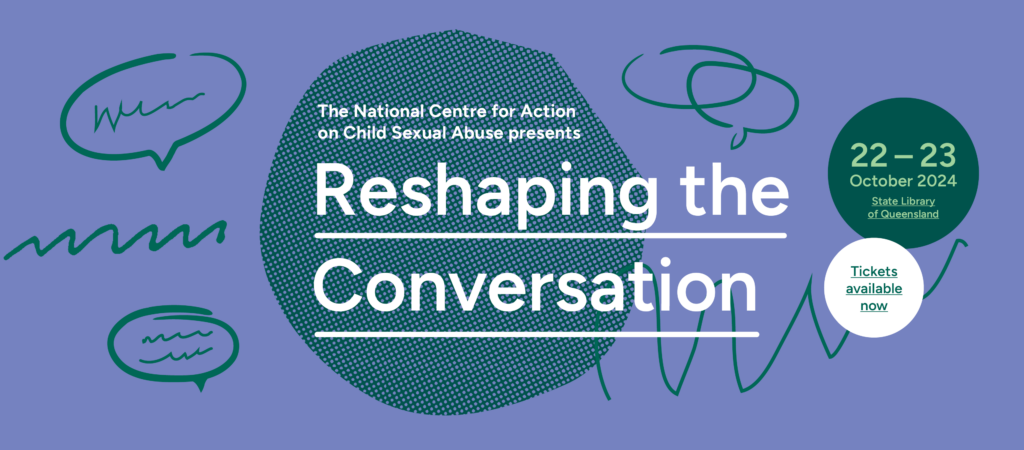Why is it so important that female leadership is at the forefront of the fight against child sexual abuse?
Cathy: Female leaders bring the passion and compassion to spearhead transformational change across the most fundamental of societal issues – child sexual abuse. Child sexual abuse is a pervasive social practice predicated on a power imbalance. Female leaders can leverage their nuanced understanding of gendered power dynamics and use this to disrupt traditional structures. Their inherent groundedness around issues impacting children and the family, and their relational approach, can bridge gaps and engage diverse communities, institutions, and governments to shape the policies and interventions needed to address the root causes of child sexual abuse and deliver new and real possibilities for victims and survivors.
Belinda: Female leadership can bring a unique perspective to the fight against child sexual abuse, but we need to remember it’s a collective effort, and everyone’s involvement is key. I think women can bring a deep level of empathy and understanding to creating policies and support systems that are truly attuned to the needs of survivors. We can also challenge traditional gender dynamics that sometimes play a role in perpetuating abuse. By taking a stand, we can help shift societal attitudes and promote a culture of respect and equality. We can represent and amplify the voices of those who have historically been marginalised or silenced and supporting survivors who might otherwise feel voiceless. Seeing women in leadership roles can inspire others, especially young girls, and women, to speak out, act and believe in their ability to make a difference.
Leanne: Women leaders have likely faced exclusion, entrenched bias, and gendered power imbalances. We know what it is like to be silenced or not validated for who we are, what has happened to us and what we are saying. Women leaders often have lived experience of being ignored and not believed. At the same time, research tells us that women leaders tend to be more collaborative and inclusive. We have lived experience on managing distorted power dynamics and the skills to combat these with relational strength. We know what it is like to feel small, and we can use our experiences to fight for those who are small.
“When we stand and speak together, it becomes a shout. We defy the abusers, we challenge the collusion, we call out the harm and we break the silence.”
How can women leaders use collective strength to drive meaningful change in the fight against child sexual abuse?
Cathy: The issue of child sexual abuse is too substantive and its repercussions too decimating and disempowering to not be tackled with a collective movement for change. Yet it remains an issue which is largely silenced, stigmatised and hidden. Not only can women in leadership galvanise others to walk with and alongside them, but speaking out with strength, integrity and truth can inspire others to find their own strengths and build on them, individually and collectively. In this way, amplified voices for meaningful change will resonate and we will together start to drive true collective decisive action.
Belinda: As women leaders we can lean into our collective strength through collaboration, shared experiences, diverse perspectives, and a unified voice. We can create and strengthen networks offering support and advocacy, share knowledge and disseminate resources, lead initiatives to support healing and break down the stigma and silence surrounding child sexual abuse.
Leanne: We know that when women stand in solidarity together, we harness strength and a stronger, louder voice. In the face of the stigma and shame, secrets and silencing that seems to go hand in hand with the experience of child sexual abuse, we can stand together to be believing adults. When we stand and speak together, it becomes a shout. We defy the abusers, we challenge the collusion, we call out the harm and we break the silence.
“Your courage shines brightly, you are a mini warrior. Your voice carries the strength and power to speak truths that others need to hear.”
If you could say something to your 10-year-old self, what would it be?
Cathy: You’re not to blame for what’s happening to you. It’s not your fault and you don’t need to be good all the time or hide or stay so quiet that no one notices you. You can speak and what you say is important, and you’re not stupid despite what you’ve been told. And one day you will be safe and then you’ll think about what happened to you, and cry as much as you like without getting into trouble. And then you will do whatever you can to make sure that what happened to you doesn’t ever happen to anyone else.
Belinda: Your courage shines brightly, you are a mini warrior. Your voice carries the strength and power to speak truths that others need to hear. Remember, you are never unseen or forgotten; there are people who care deeply about you. As you travel through life, you will find a path that helps you understand your true self and help you understand your journey.
Leanne: You are correct – not everyone is kind to children and not every adult is a safe person to be with. Keep trusting the adults in your life who listen to you carefully and make you feel safe and heard. And know that being a good friend can mean helping someone find their voice and be believed about what is happening to them.











